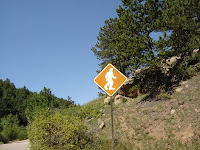Grant writing is definitely not a boring profession. There are challenges, but there are also some big benefits.
Here are the top 3 things I love about grant writing:
- Creativity – I love the who process of taking a few ideas, fleshing them out, and creating a detailed program design. In fact, for the me the process is a lot like staring at one of those abstract holographic pictures. At first, it just looks like colors and shapes – no order, nothing else there. Then, after you have started at it for a while, a 3-dimensional image leaps from the background and you see it. At that point, it is so clear to you, that it’s hard to even see the picture without the 3D image anymore. That’s what grant writing is like for me. At some point in the process of planning, reviewing research, collecting data, and talking to the client, the picture of a solid design clarifies. At that point, putting it in writing is the easy part.
- Making a Difference – I have written about this before. I also provide program evaluation services. There are very few things in this life as satisfying as going to conduct some evaluation activities and meeting the people who get a direct benefit from the grant you wrote. At one time there was nothing but an idea in your head, and then there are real people whose lives are better because of your work. Wow! It doesn’t get much better than that.
- Time Flexibility – Make no mistake about it, grant writing is work, but if you work for yourself, you can manage your time as you choose. For example, this is a really busy time of year and I have lots of writing projects to work on, but I didn’t want to work today. I wanted to stay home with my son, take care of some blogging. do some recreational reading. So I did. If I want to take off during the middle of the week to go to a baseball game during the day, I can. I know this is a benefit that self-employed folks in many fields can claim, but I really like it.
There are lots of other things I like about my work, but those are the big three.
What about you? What do you like most about grant writing?
—————————————-
Check out the new GrantGoddess Channel on YouTube! It’s new, but there will be more and more instructional videos added, so subscribe to it and you’ll be notified whenever new content is added.
Have you become a member yet? If not, check out the member benefits and sign up soon. The early bird rate will expire soon. Joining now will give you access to some exclusive member trainings coming soon – not to mention all the cool multimedia resources that are being added daily.





